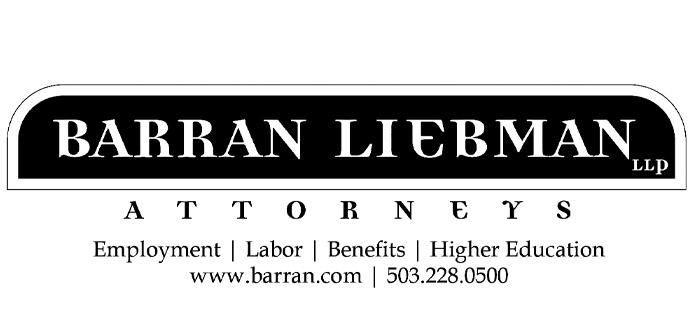Wage & Hour Traps for Employers
In my employment litigation defense practice, I’ve noticed a recent proliferation of wage and hour mistakes, which serves as a reminder to Oregon employers to take heed of legal obligations with respect to employee pay before it becomes a costly business expense.
Meal Breaks
While meal and rest breaks are required by Oregon regulations for shifts of certain lengths, shortened meal breaks provide a potential wrinkle for employers. Under Oregon law, meal periods of at least thirty minutes must be provided to non-exempt employees who work a shift of at least six hours during a work period (though a second meal break is required if the shift length is fourteen hours or more). During this 30-minute break, the employee must be relieved of all duties; that is, they must take a full thirty-minute period where they do not perform any work. If an employee returns to work early (i.e., does not take the full thirty minutes for their meal break), then the employer must pay for the entire meal period, regardless of the reason the employee returned early. This becomes even more important when the employee’s employment ends if it has not been caught beforehand due to the penalties that can be levied against Oregon employers.
Final Paycheck Penalties
In Oregon, an employee’s final paycheck is due on a certain date, dependent upon how the employment relationship ended (termination, quit with notice, or quit without notice). Failure to timely issue the final paycheck, including all wages due and owing to the employee as a result of their work for the employer, can lead to Draconian penalties which can be quite severe and vastly outweigh the minimal wages owed.
Imagine a situation where a minimum wage worker returns early from a meal period one time during their employment tenure. Let’s say they clock in one minute early so that they are not late. 29 minutes—the amount of time that should be paid under Oregon law in such circumstances—at Oregon’s minimum wage (in the Portland metro area) is equivalent to $7.47. If the employee comes back early from a meal period one time during their employment, and the 29 minutes is never paid to them, including on their final paycheck, the maximum penalty amounts to $3,708—nearly 500 times the amount of the mistake. Now, the law does have some exceptions built in that an employer can take advantage of in certain circumstances to cap the penalties, but they are time dependent, so if employers ever receive a demand for payment of wages, they should inform their employment law attorney immediately.
Deductions for Employee Loans or Paycheck Advances
Many Oregon employers care deeply about their employees, and want to help them out when times are hard. Some employers elect to loan money to employees, or provide a paycheck advance, when bills pile up for their workers. While these magnanimous acts wonderfully illustrate the benevolence of many Oregon businesses, such actions are fraught with the potential for wage and hour liability. Is the loan documented? How is it going to be paid back? Often, employees and employers simply want paycheck deductions to be made under some agreed-upon plan to repay the loan or advance. However, Oregon law has strict requirements as to what can be deducted from paychecks and when.
With respect to loan repayments, under Oregon law, “[a]n employer may not withhold, deduct or divert any portion of an employee’s wages unless . . . [t]he deductions are voluntarily authorized in writing by the employee, are for the employee’s benefit and are recorded in the employer’s books.” Therefore, if an employer loans money to an employee, they should have a signed, written agreement with the employee that characterizes the money as a loan for the employee’s benefit, lays out the terms of the loan, and authorizes the employer to deduct the acceptable loan repayment amounts form the employee’s paycheck.
Deductions from a final paycheck, however, have a slightly different set of restrictions. If an employee leaves employment and the employer wishes to deduct the remaining loan balance from the final paycheck, they need to jump through even more hoops to comply with Oregon’s wage and hour laws. In such situations, in addition to needing a written agreement, all of the following conditions must also be met:
“the employee has voluntarily signed the agreement; [t]he loan was paid to the employee in cash or other [method of paying employees that complies with Oregon law]; [t]he loan was made solely for the employee’s benefit and was not used, either directly or indirectly, for any purpose required by the employer or connected with the employee’s employment with the employer; the amount of the deduction at termination of employment does not exceed the amount permitted to be garnished under [Oregon law]; and [t]he deduction is recorded in the employer’s books.”
Because paycheck deductions can be risky endeavors, and incorrect deductions subject employers to liability not only for the deduction but the aforementioned final paycheck penalties, it is wise to carefully consider such actions before undertaking them and, if unsure, talk to an employment attorney to ensure all appropriate steps are taken before making the deductions.
Sean Ray is a partner at Barran Liebman LLP. For questions, contact him at 503-276-2134 or at sray@barran.com.



